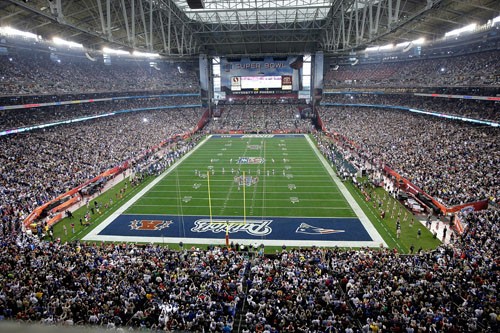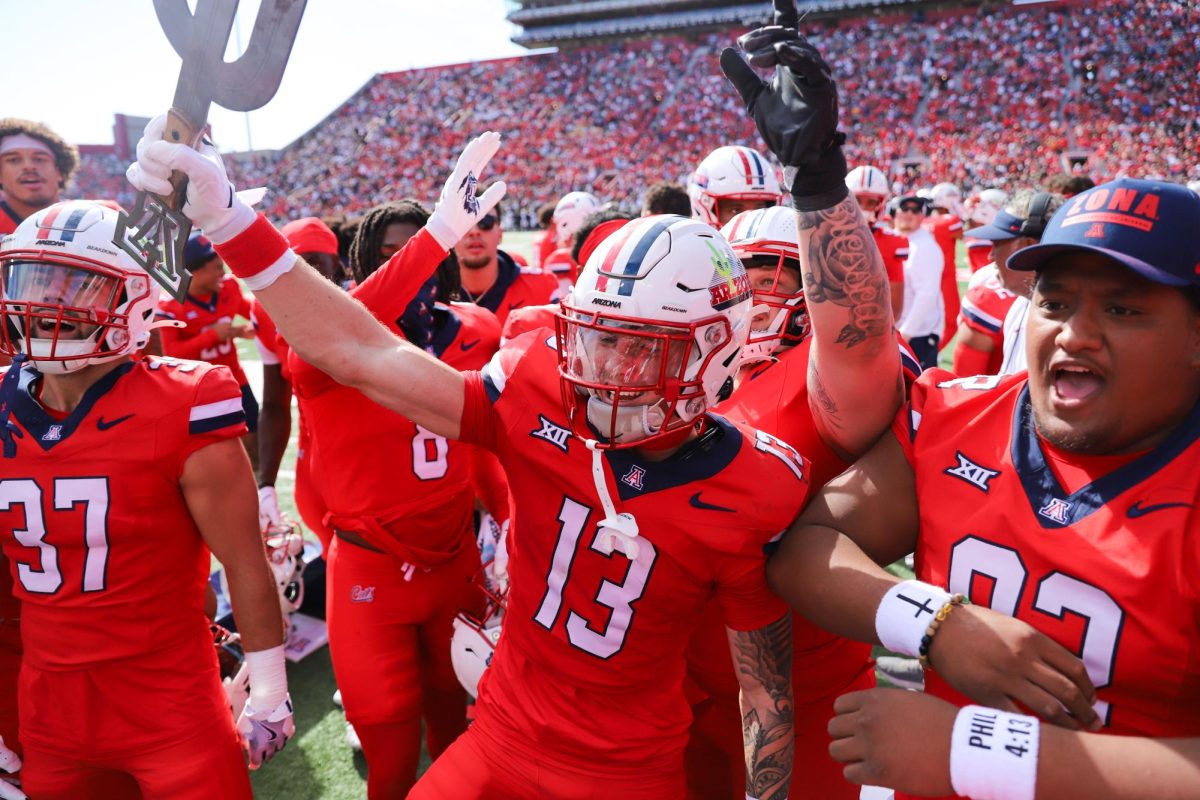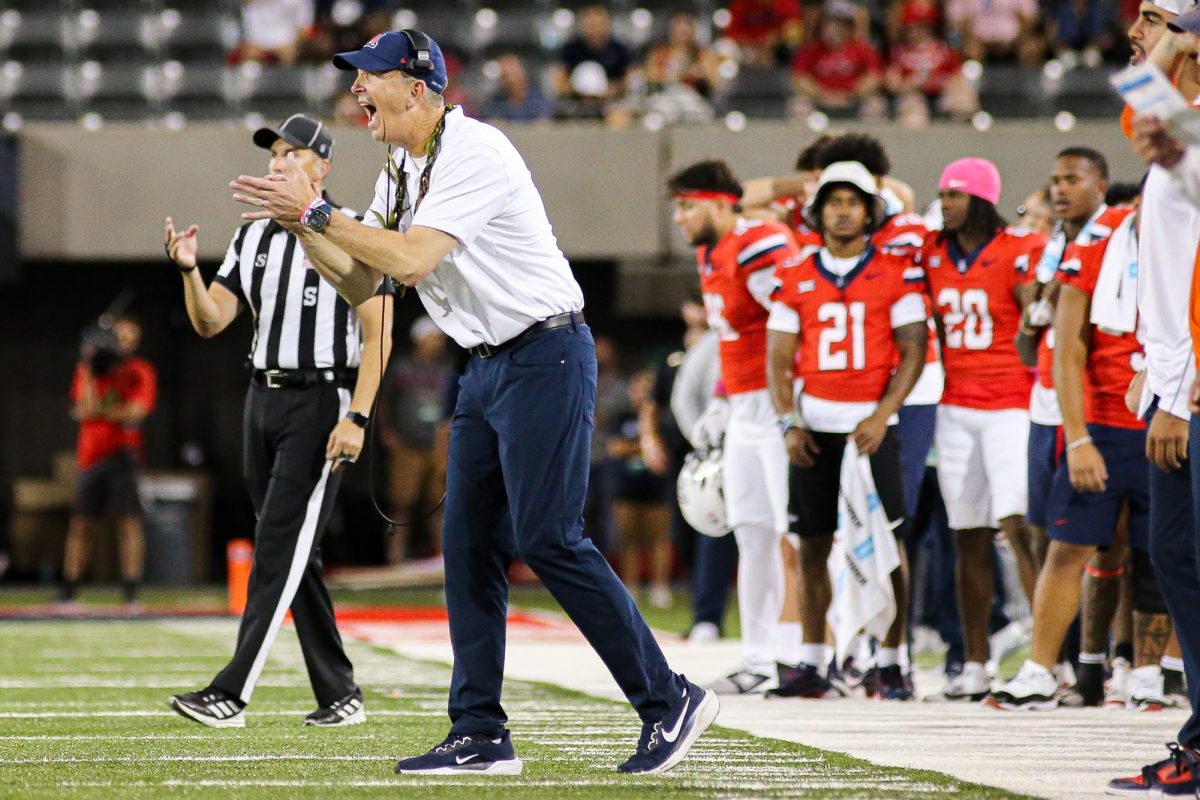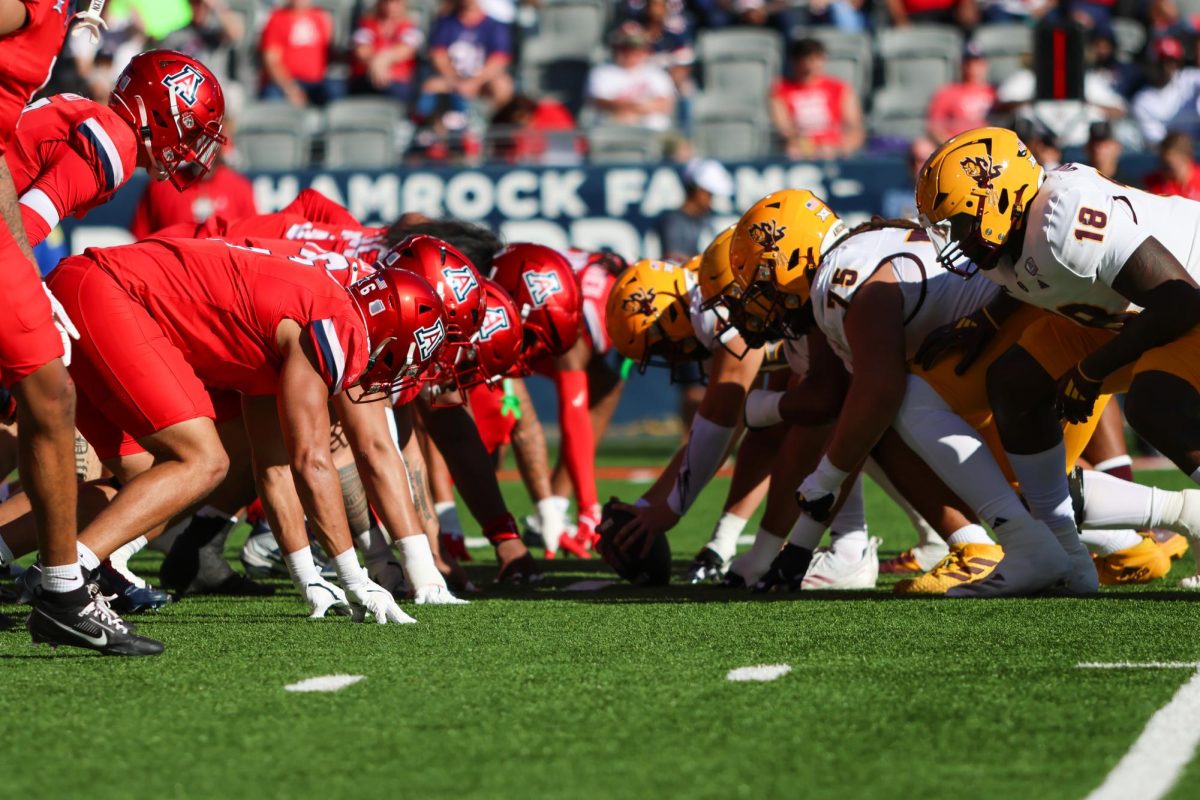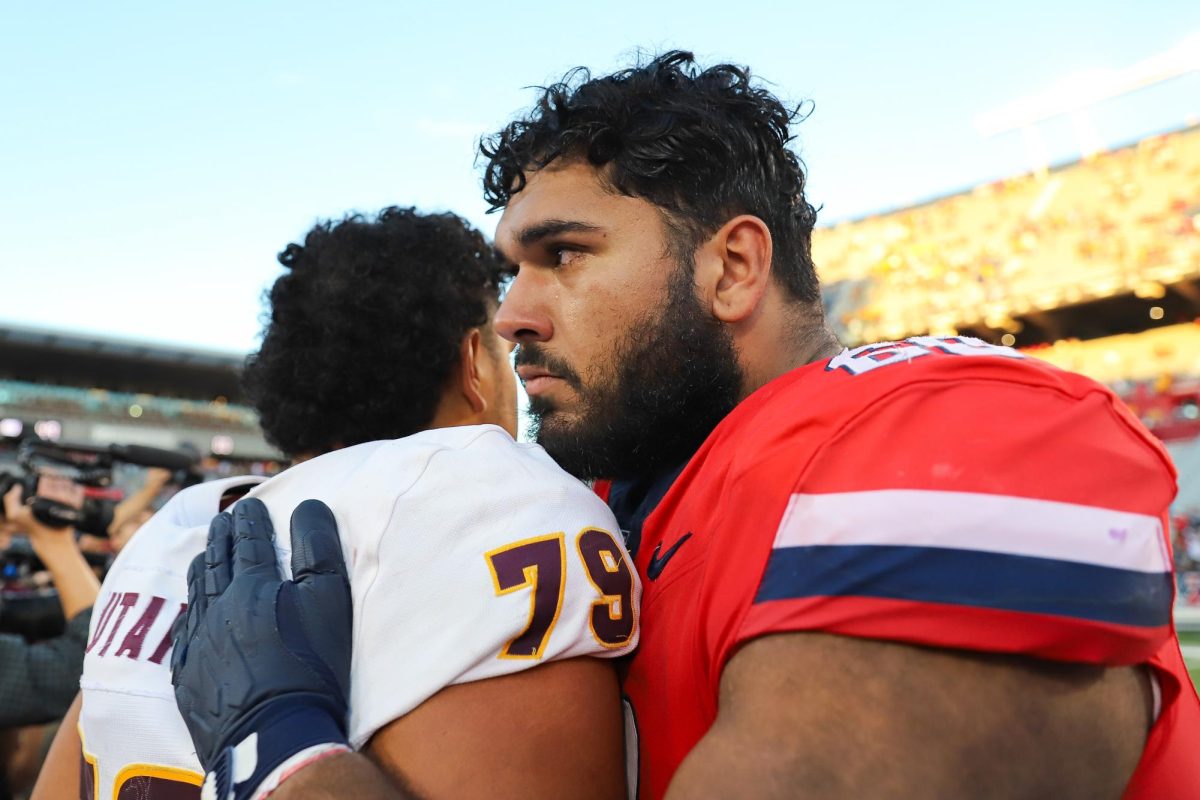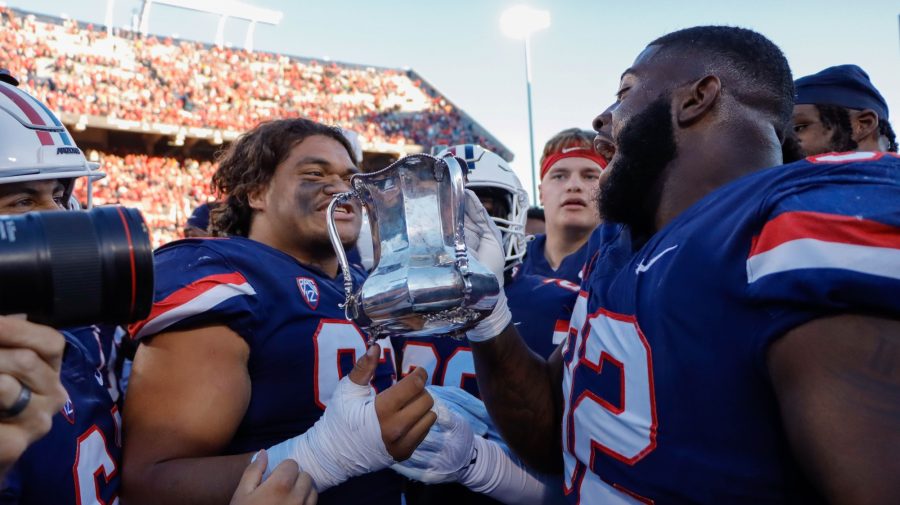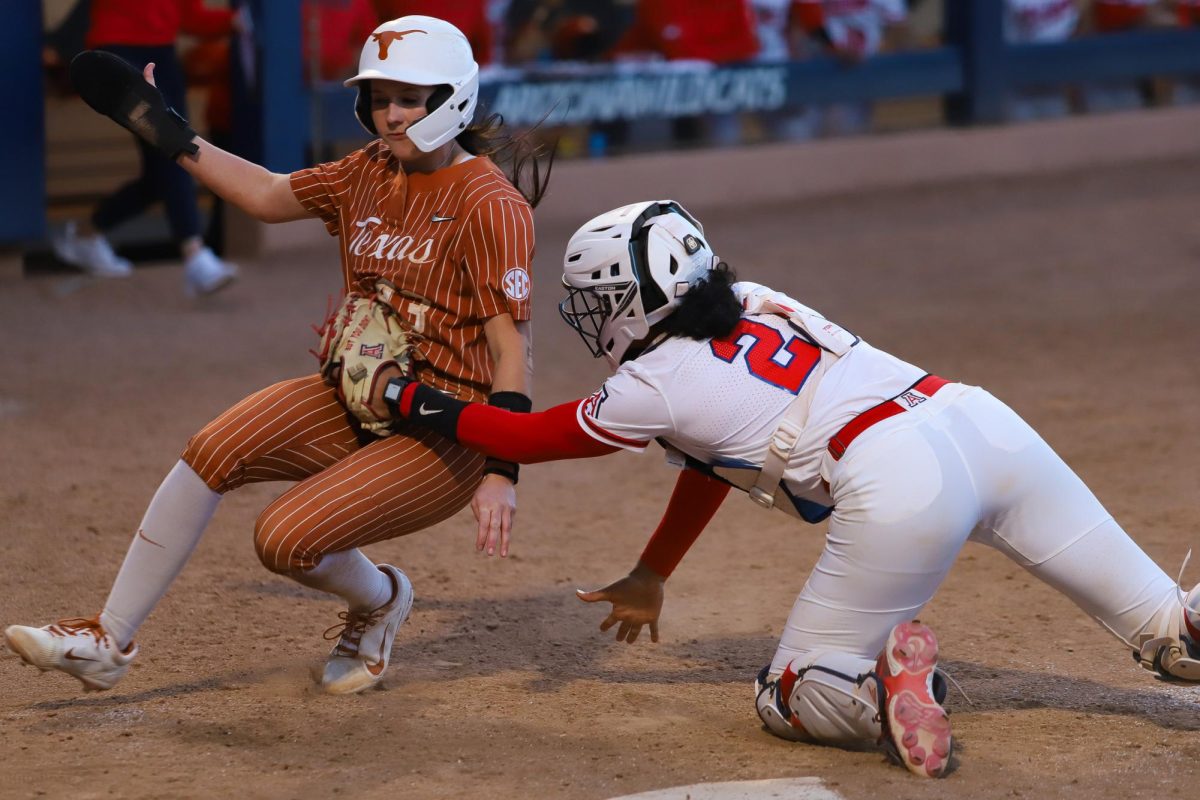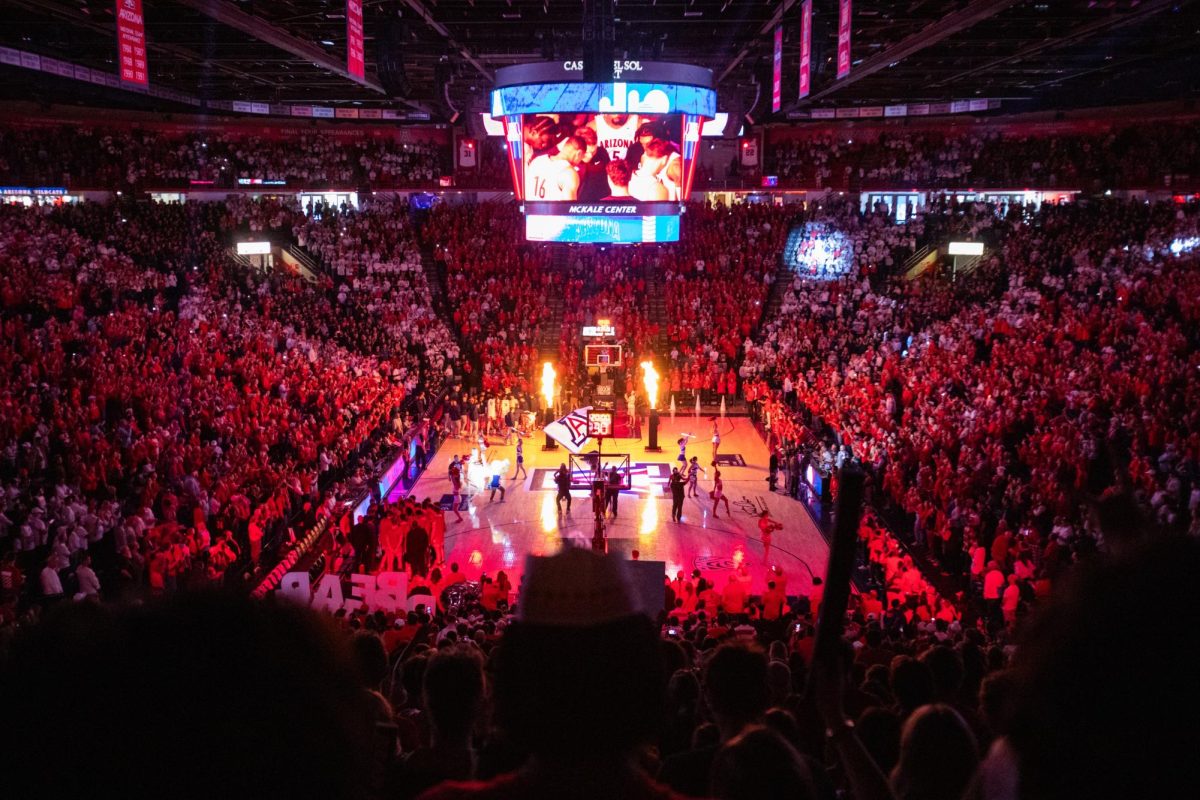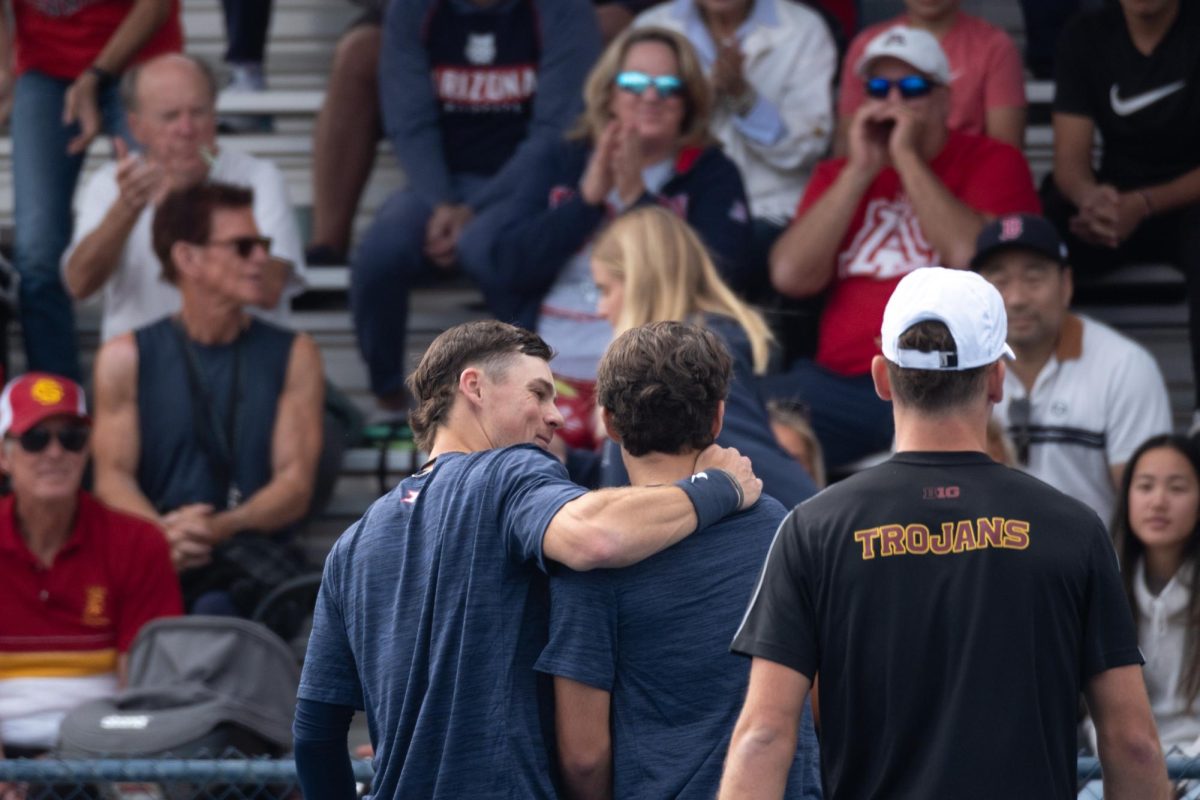They say home is where the heart is.
For Arizona athletic director Greg Byrne, that saying may take on a whole new meaning.
Byrne, in his first year in the position, confirmed that the athletics department would explore the possibility of replacing one of Arizona’s home football games in Tucson with one at the University of Phoenix Stadium in Glendale.
“”I think we have to at least explore the possibility,”” Byrne said. “”We want to make sure we’re doing things to give us exposure in all the different markets around the state.””
Suzy Mason, associate director of athletics in charge of event management and facilities, said that while making sure to include Phoenix in the locations for a Saturday Wildcat football game is a goal of the new administration, the idea was more in the stages of a conversational topic.
“”We’d be doing ourselves an injustice if we didn’t look at opportunities that reach the Phoenix metro area,”” Mason said.
University of Phoenix Stadium, which is home to the 2011 BCS National Title Game and the NFL’s Arizona Cardinals, can seat up to 72,000 spectators, a venue that would reach out to Wildcat fans all around the state of Arizona.
“”We wouldn’t take a football game anywhere but Phoenix,”” Byrne said. “”But we need people engaged and involved throughout the state of Arizona on the regular basis.””
Mason agreed that the effort to move the home game north shows a desire to connect with the alumni who can’t make it to Arizona Stadium every Saturday.
“”You’ve got to go where the people are, and obviously we love the southern Arizona fans and that’s where we’re situated, but there are a lot of alums in and around the Phoenix area,”” Mason said.
While the proposed switch would be a new adventure during the regular season for Wildcat fans, moving a home football game to another venue isn’t unheard of.
“”We’re not starting a new trend, necessarily, in our industry, it just hasn’t been done on the West Coast as much as it’s been done in other parts,”” Byrne said. “”It’s happening a lot … Virginia Tech and Boise State are playing in Washington, D.C., this year. The Chick-Fil-A Bowl has a kick-off game every year in Atlanta, Virginia Tech and Alabama played there last year. Oklahoma and Texas play every year in Dallas, and Texas A&M and Arkansas play every year in Dallas.””
The desire to increase the UA’s presence in central and northern Arizona doesn’t end with the fans. The benefits increase with the ability to attract a formidable non-conference school to play at University of Phoenix Stadium, as well as more national attention in terms of recruiting.
A game against a big-name school in an NFL stadium would certainly attract more recruits, not only in the state of Arizona, but across the nation.
But what about the southern Arizona fans? The student section? The money that the city of Tucson would lose for that one game? Would the larger stadium sell out?
Mason said the athletics department generates roughly $350,000 in profits per Arizona home football game. That money would be slightly, if not significantly, lower for this proposed move to Phoenix because of rental and venue fees the department would have to pay to even get the game at University of Phoenix Stadium.
Another factor that would have to be considered would be support. The current Zona Zoo section in Arizona Stadium seats 10,000 students. The question of just how far up the I-10 Zona Zoo’s support extends would have to be answered.
Mason said there were no known specifics of how the athletics department would compensate season ticket holders, but speculated that there would be a similar situation to the services provided for a Wildcat game against ASU in Tempe.
“”The best thing we’ve got going for us on game day sometimes is Zona Zoo,”” Mason said.
“”There’s no reason we wouldn’t do everything we could to reach out to them and (make) a marketing effort from an operational standpoint.””
University of Phoenix Stadium has 17,000 more seats available than Arizona Stadium, and unless a big-name school like Texas or Notre Dame were selected as an opponent, there would be no guarantee that the alumni presence would be enough to fill the seating void.
“”We certainly would expect it to (sell out),”” Bryne said. “”To be quite frank, if we can’t do that then I’m not quite sure it makes sense to have the game.
“”It would probably be a very rare chance we would do it every four, five or six years, something along those lines,”” he added.



